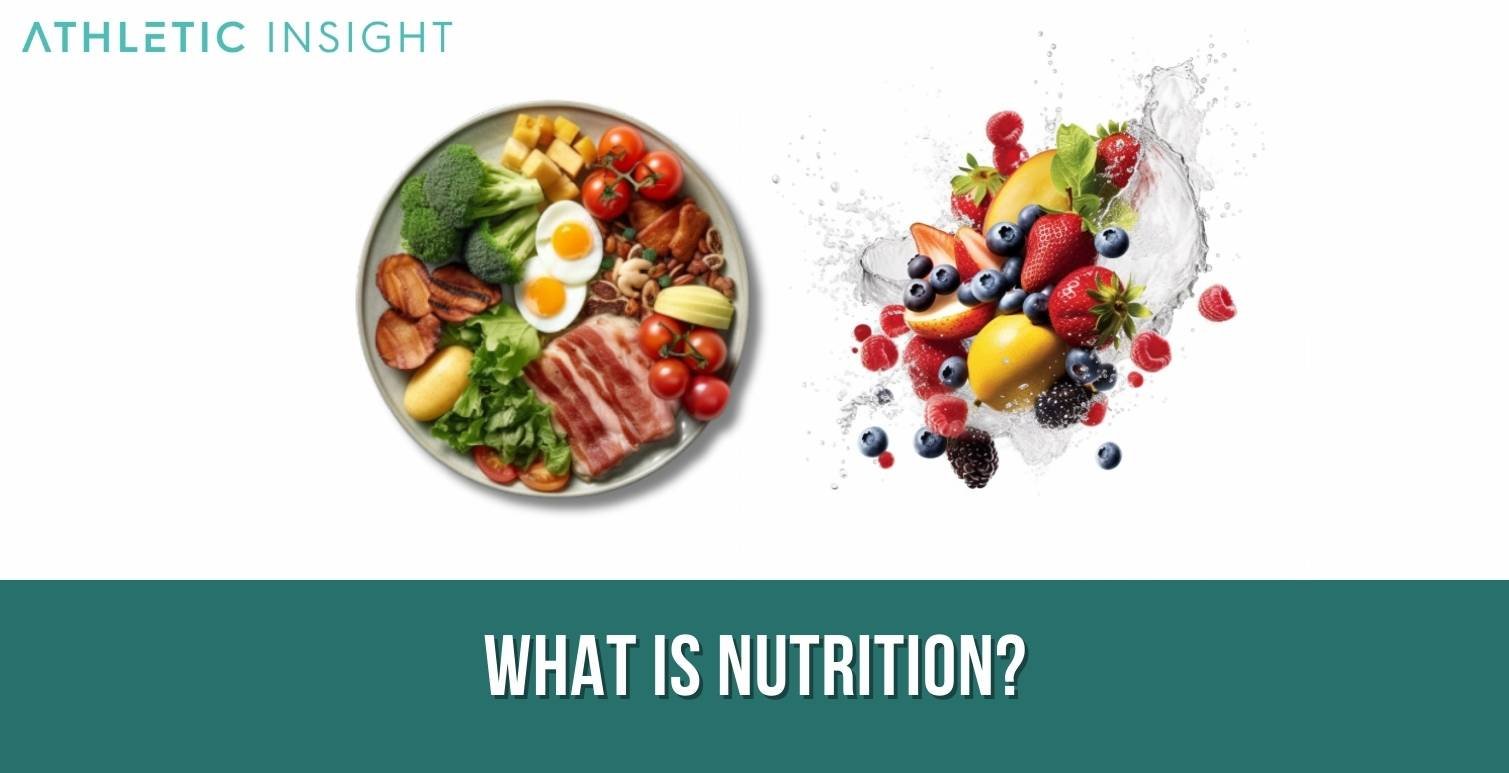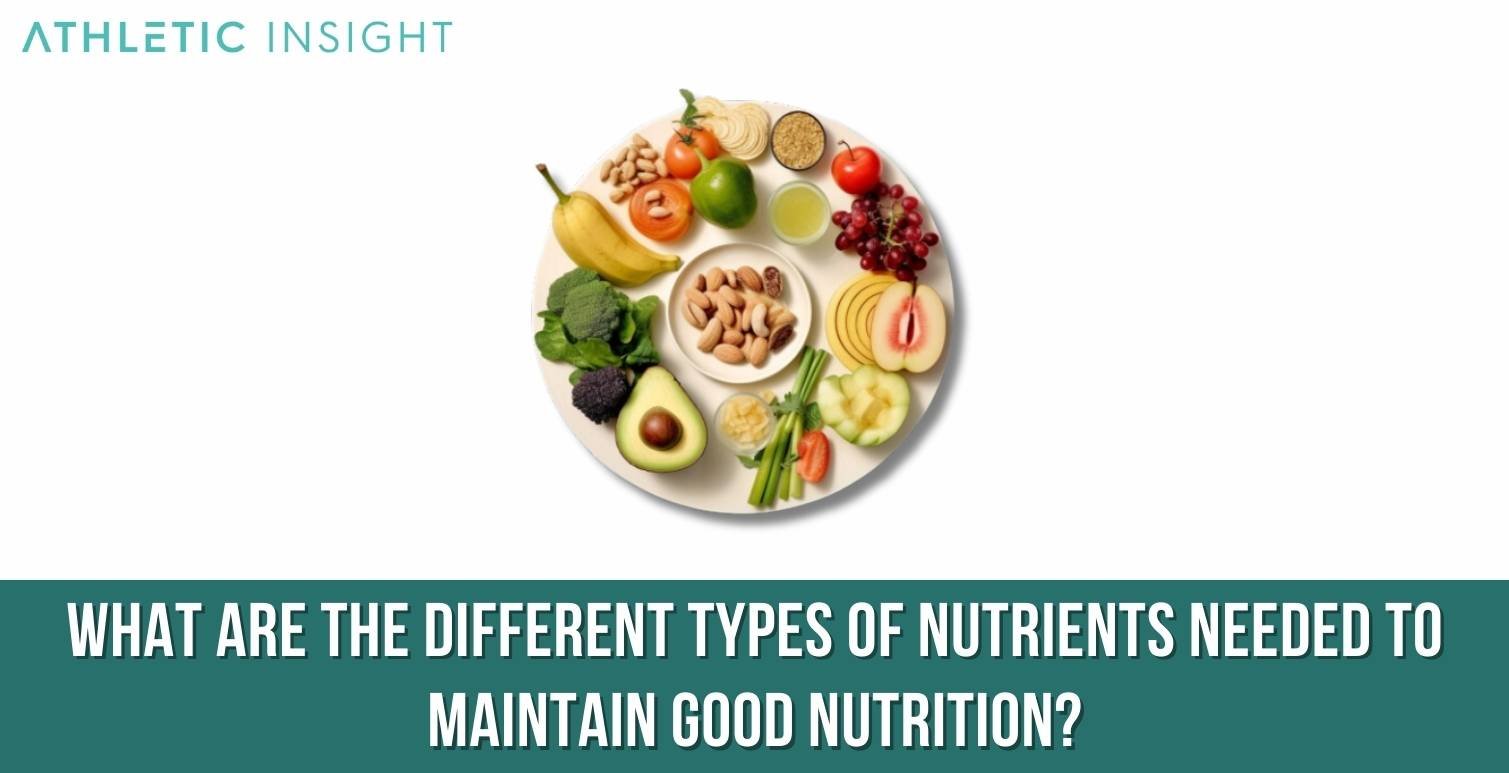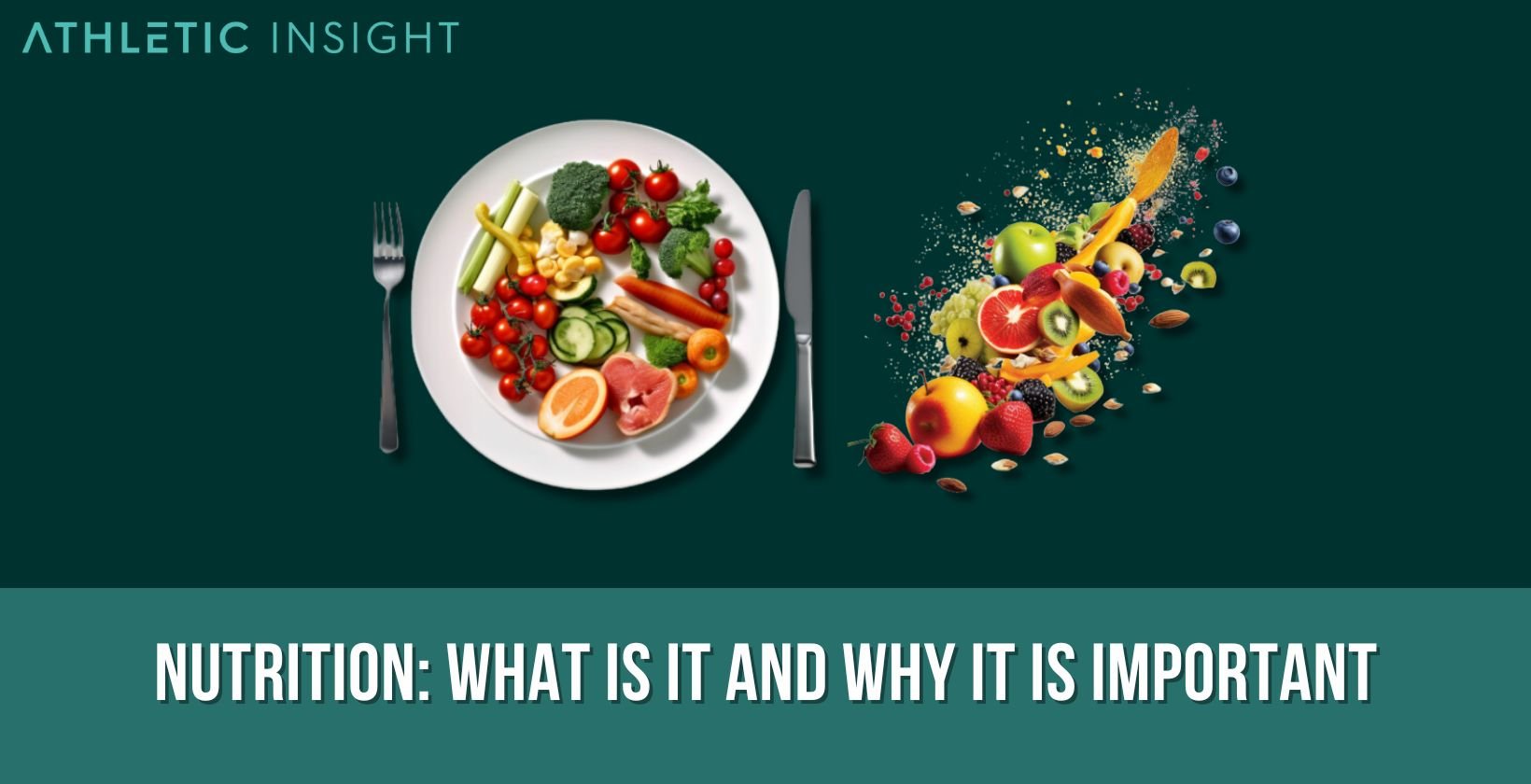The concept of nutrition is not merely related to the act of consuming food; it goes beyond to involve how our bodies utilize the food we consume to maintain our health, grow, and perform daily activities. This introductory discourse will delve into the understanding of nutrition, emphasizing its critical importance to human health and wellbeing.
Nutrition, as a science, unravels the intricate relationship between dietary habits, health, and disease susceptibility. It provides a roadmap to a balanced diet, hinting at what to consume for optimal bodily functions. As the topic is broached further, the emphasis will lie on its role, importance, and the influence of nutritionists in promoting good health.
What is Nutrition?
Nutrition is a biological process in which organisms assimilate food and liquids necessary for functionality, growth, maintenance, and the repair of vital processes. It involves the intake of nutrients, their assimilation and utilization in the body.

These nutrients, derived from the food we consume, are the building blocks of life. They are the catalysts that drive all cellular functions, including energy production, growth and development, and maintenance of the immune system. Thus, nutrition goes beyond the simple act of eating, deeply ingraining itself in every aspect of our existence.
What is the other term for Nutrition?
The term “Dietetics” is often used interchangeably with nutrition. Dietetics refers to the application of the principles of nutrition in designing and preparing food for individuals or groups, promoting optimal health and managing diseases.
The usage of the term typically revolves around the planning and preparation of diets in a clinical, public health, or food service setting. Dietetics emphasizes not only the importance of balanced eating but also the specific requirements and adjustments necessary for different health conditions or stages of life.
What is the importance of Nutrition in maintaining good health?
Nutrition plays an instrumental role in maintaining good health, influencing all aspects of physical wellbeing and disease susceptibility. A balanced intake of nutrients boosts immune function, supports tissue growth and repair, and aids in the prevention and management of chronic diseases.
Healthy nutrition is not merely about preventing deficiencies; it’s about promoting overall health, vitality, and longevity. An adequate, well-balanced diet, coupled with regular physical activity, is a cornerstone of good health. Poor nutrition, on the other hand, can lead to reduced immunity, increased susceptibility to diseases, impaired physical and mental development, and reduced productivity.
What is the role of a Nutritionist in promoting good Nutrition and health?
A nutritionist is a health professional who advises individuals on dietary practices to promote health and manage diseases. The role of the nutritionist is to develop personalized nutritional plans, encourage healthful eating habits, and guide food choices to support overall wellbeing.
Nutritionists leverage their expertise in nutritional science to assess individual needs based on factors like age, lifestyle, health status, and genetic makeup. They are instrumental in public health campaigns, where they educate communities about the importance of nutrition in disease prevention and health promotion.
How does a Nutritionist differ from Sports Nutritionist?
A sports nutritionist, while fundamentally a nutritionist, specializes in optimizing dietary practices for athletic performance and recovery. The sports nutritionist provides personalized dietary advice considering the specific needs of athletes, such as improving endurance, building muscle strength, or managing weight.
While general nutritionists focus on the broader aspects of diet in relation to overall health and disease prevention, sports nutritionists take it a step further. They analyze the unique physiological and nutritional demands of physical activity and formulate strategies to meet these needs, facilitating peak performance and swift recovery.
What are the different types of Nutrients needed to maintain good Nutrition?
For good nutrition, the body needs a balance of several nutrient types. These include macronutrients (Carbohydrates, Proteins, and Fats), micronutrients (Vitamins and Minerals), and Dietary Fiber. Each nutrient group has a unique role and provides distinct health benefits.
- Macronutrients
- Micronutrients
- Dietary Fiber

Do Vitamins and Minerals play an essential role in Nutrition?
Yes, vitamins and minerals indeed play an essential role in nutrition. Termed ‘micronutrients’ due to the small quantities required by the body, they are nonetheless crucial for the proper functioning of all body systems.
Vitamins and minerals are involved in a host of physiological processes such as energy production, immune function, blood clotting, and making DNA. For instance, calcium and vitamin D are necessary for maintaining bone health, while vitamin C aids in iron absorption and promotes skin health. Hence, a diet devoid of these vital nutrients can lead to various health issues, emphasizing their importance in nutrition.
Does eating a balanced Diet help maintain good Nutrition?
Yes, consuming a balanced diet is paramount to maintaining good nutrition. A balanced diet incorporates the right proportions of different food groups, ensuring the body receives all the necessary nutrients for optimum health.
A balanced diet typically includes a variety of foods from all food groups: fruits and vegetables, grains (preferably whole grains), dairy products, meats or other sources of protein, and a small amount of healthy fats. Ensuring diversity in one’s diet not only provides a broad spectrum of nutrients but also enhances the enjoyment of meals.
Does staying hydrated help maintain good Nutrition?
Yes, staying hydrated is an integral component of good nutrition. Water plays many roles in the body, including maintaining electrolyte balance, regulating body temperature, aiding digestion, and flushing out toxins.
Dehydration, on the other hand, can lead to numerous health issues, including fatigue, dizziness, and cognitive impairments. Hence, along with consuming nutrient-dense foods, it’s crucial to drink an adequate amount of water and other fluids throughout the day.
Should you limit your intake of processed foods for good Nutrition?
Yes, limiting the intake of processed foods is strongly advised for maintaining good nutrition. Processed foods often contain high levels of unhealthy fats, sugars, and sodium, while being low in essential nutrients.
Excessive consumption of processed foods has been linked to an increased risk of various health conditions, including heart disease, diabetes, and obesity. Therefore, focusing on a diet rich in whole, unprocessed foods can significantly enhance nutrition and promote better health.
What are the Benefits of Good Nutrition?
Good nutrition bestows a myriad of benefits. It bolsters the immune system, helps maintain a healthy weight, reduces the risk of chronic diseases like heart disease and cancer, and promotes overall growth and development. Good nutrition supports mental health, enhancing mood, memory, and cognitive abilities.
- Helps Immune System
- Maintain a Healthy Weight
- Reduces Chronic Disease Risks
- Promotes Overall Growth and Development

How can good Nutrition improve an Athlete’s performance?
Good nutrition provides the energy athletes need to perform, support the repair and building of muscles, and aid in recovery post-workout. It also enhances focus and decision-making, critical aspects of athletic performance.
For athletes, nutrient timing is key – eating the right foods at the right times. Before training, a meal rich in complex carbohydrates and moderate protein can fuel a workout. Post-training, protein-rich foods aid muscle recovery, while carbohydrates help replenish energy stores. Thus, a well-planned, balanced diet is integral to athletic success.
What are the Health Risks of a Poor Nutrition?
Poor nutrition can lead to a plethora of health problems. These include obesity, tooth decay, high blood pressure, high cholesterol, heart disease and stroke, type-2 diabetes, osteoporosis, and some types of cancer. Additionally, malnutrition can result in weakened immunity, increased vulnerability to diseases, impaired physical and mental development, and reduced productivity.
- Obesity
- Tooth Decay
- High Blood Pressure
- High Cholesterol
- Heart Disease
- Diabetes
- Osteoporosis
- Cancer
Is malnutrition a type of poor Nutrition?
Yes, malnutrition is indeed a form of poor nutrition. Malnutrition refers to deficiencies, excesses, or imbalances in a person’s intake of energy and/or nutrients. It includes both undernutrition (wasting, stunting, underweight) and overweight, obesity, and diet-related noncommunicable diseases (such as heart disease, stroke, diabetes, and cancer).
While often associated with food scarcity, malnutrition can also result from a lack of healthy food choices, incorrect portion sizes, or the body’s inability to absorb nutrients. Hence, it underscores the importance of balanced, nutrient-rich diets for optimal health.
Is poor Nutrition a risk factor for obesity?
Yes, poor nutrition is a significant risk factor for obesity. Consuming a diet high in unhealthy fats, sugars, and refined grains, coupled with a lack of physical activity, can lead to an energy imbalance, resulting in weight gain over time.
Obesity, in turn, increases the risk of numerous health problems, including heart disease, type 2 diabetes, certain types of cancer, and decreased life expectancy. Hence, maintaining good nutrition is essential not only for weight management but also for overall health and wellbeing.
Can poor Nutrition lead to a weakened immune system?
Yes, poor nutrition can indeed lead to a weakened immune system. Nutrients, especially micronutrients, play a critical role in maintaining the immune function. Deficiencies in nutrients such as vitamin A, C, D, E, B6, B12, folate, zinc, iron, copper, and selenium can impair the immune response and increase susceptibility to infections.
Thus, a balanced, nutrient-rich diet is crucial for a strong immune system and for maintaining the body’s defense against pathogens.
What is the difference between Nutrition and Sports Nutrition?
While both nutrition and sports nutrition are fundamentally about maintaining health and wellbeing through dietary practices, the latter focuses on optimizing dietary intake for athletic performance and recovery. Proper sports nutrition is tailored to the specific demands of physical activity and sports performance, taking into account factors like the type of sport, the duration and intensity of exercise, training goals, and individual needs.
General nutrition, on the other hand, is concerned with promoting overall health, preventing diseases, and managing health conditions through balanced dietary practices. It emphasizes a variety of nutrient-rich foods to meet daily nutrient needs and promote optimal health.



